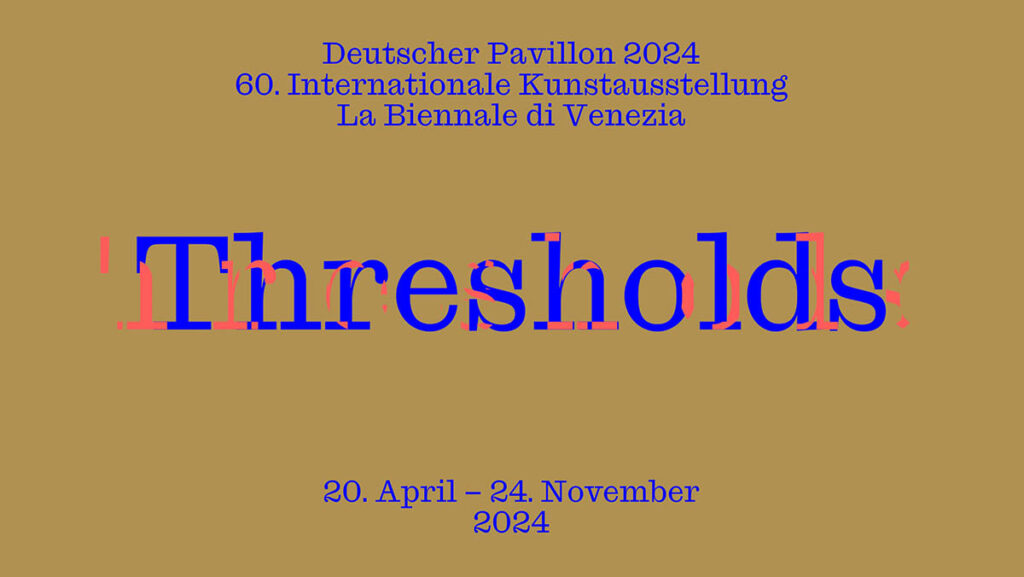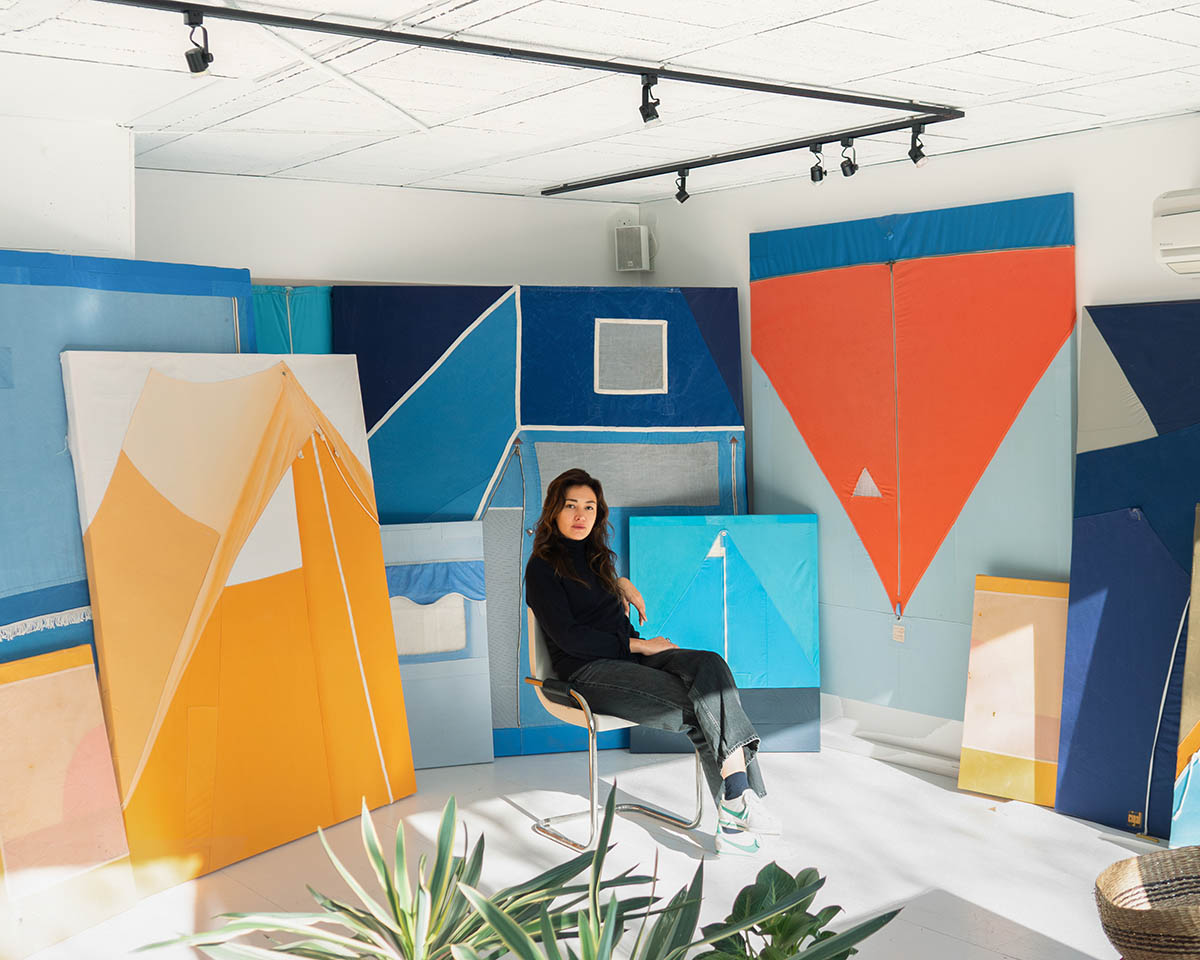
How would you describe your artistic style, and what elements particularly characterize your work?
Minimalist, brutalist, nostalgic, dreamlike… I don’t know how to define my artistic style. As a self-taught artist who didn’t attend art school, I’ve never learned to put my work into words. And I don’t want to, I think. It puts less pressure on me when I need to explore other parts of myself.
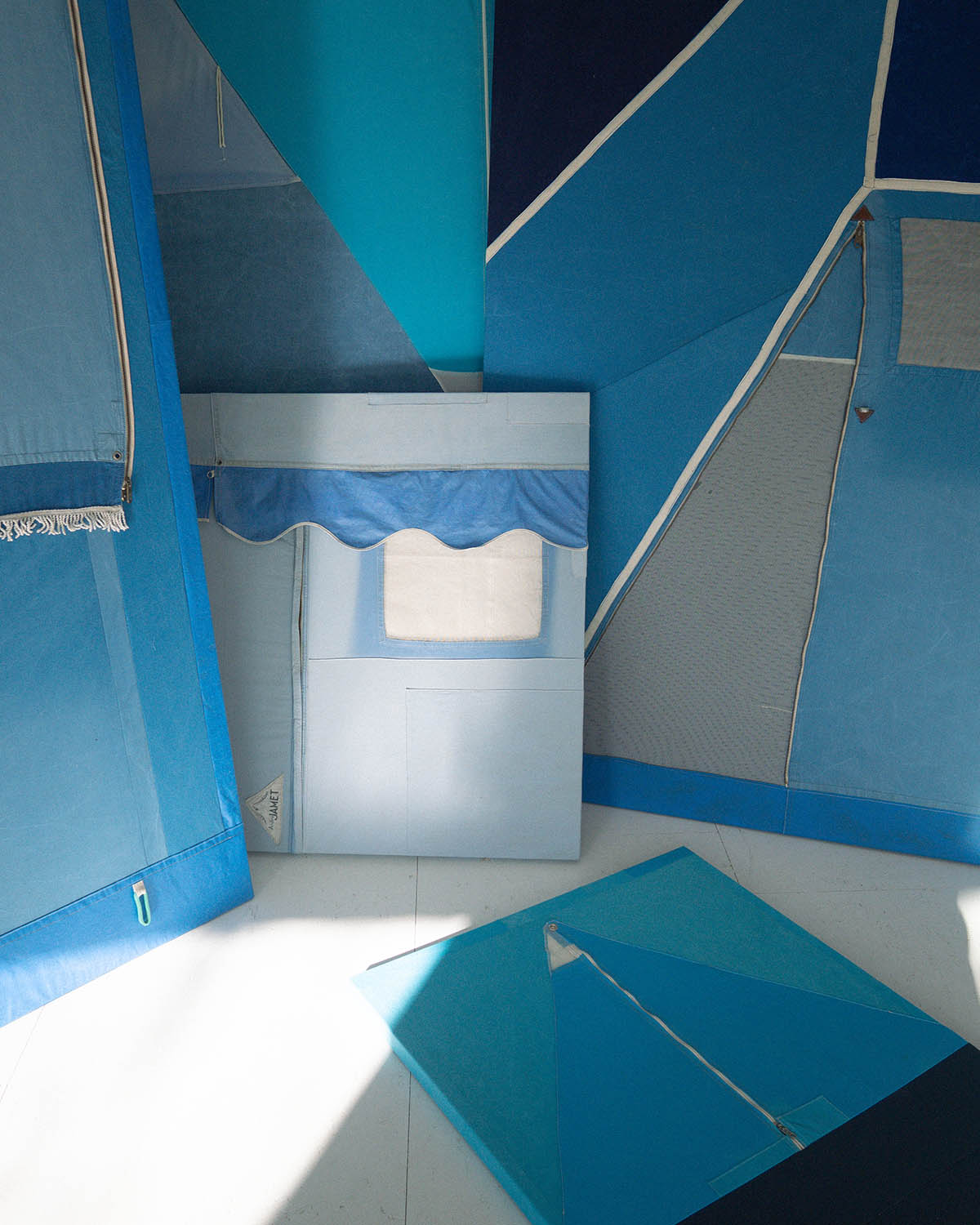
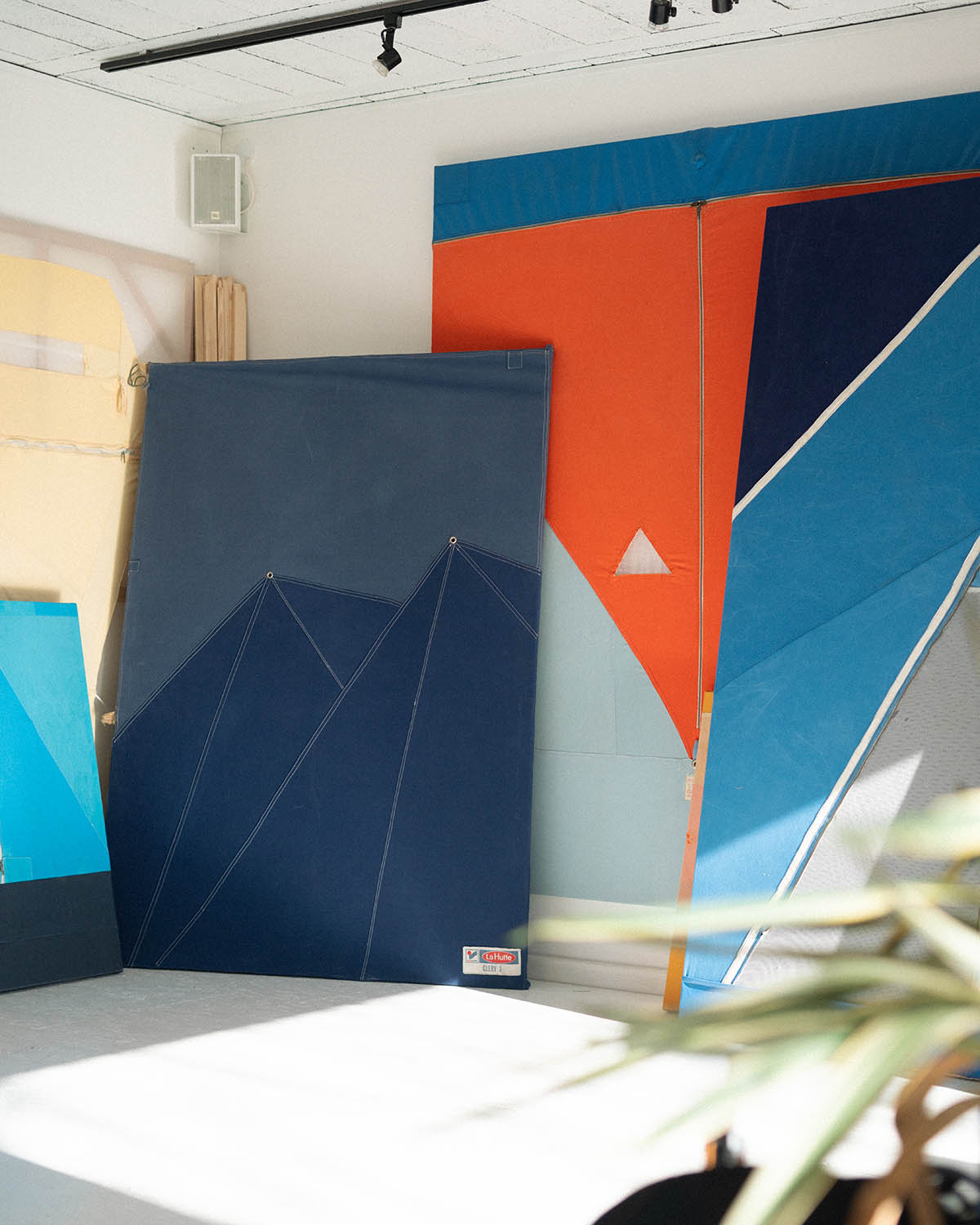
Hossegor, France, is where you live and work. Does the environment and atmosphere there influence your artistic work, and if so, in what way?
Of course! I live between the forest and the ocean, and I’m lucky to be able to go for a walk on the beach or a run in the forest to clear my head, meditate on a canvas in progress, or breathe in the fresh air. But I need to get away from the city often to boost my creativity, to meet other artists, for the excitement that a city offers. I grew up in Bordeaux and then lived in London and Paris.
I’m a city girl, and I need to talk to people about things other than surfing.
Are there certain themes that influence your paintings?
The family cocoon, childhood… I turned 40 this year, and I’m feeling a lot of nostalgia. I think working on these memories is helping me through my mid-life crisis. When I was little, I used to love discovering the houses of my parents‘ friends. I analyzed every detail, from the window to the door handle, from the height of the ceilings to the choice of carpet. It’s always different in other people’s homes, and I soon realized that none of the interiors or buildings gave me the same emotions and that everyone needed to build a nest for themselves and their families and to identify with their home.
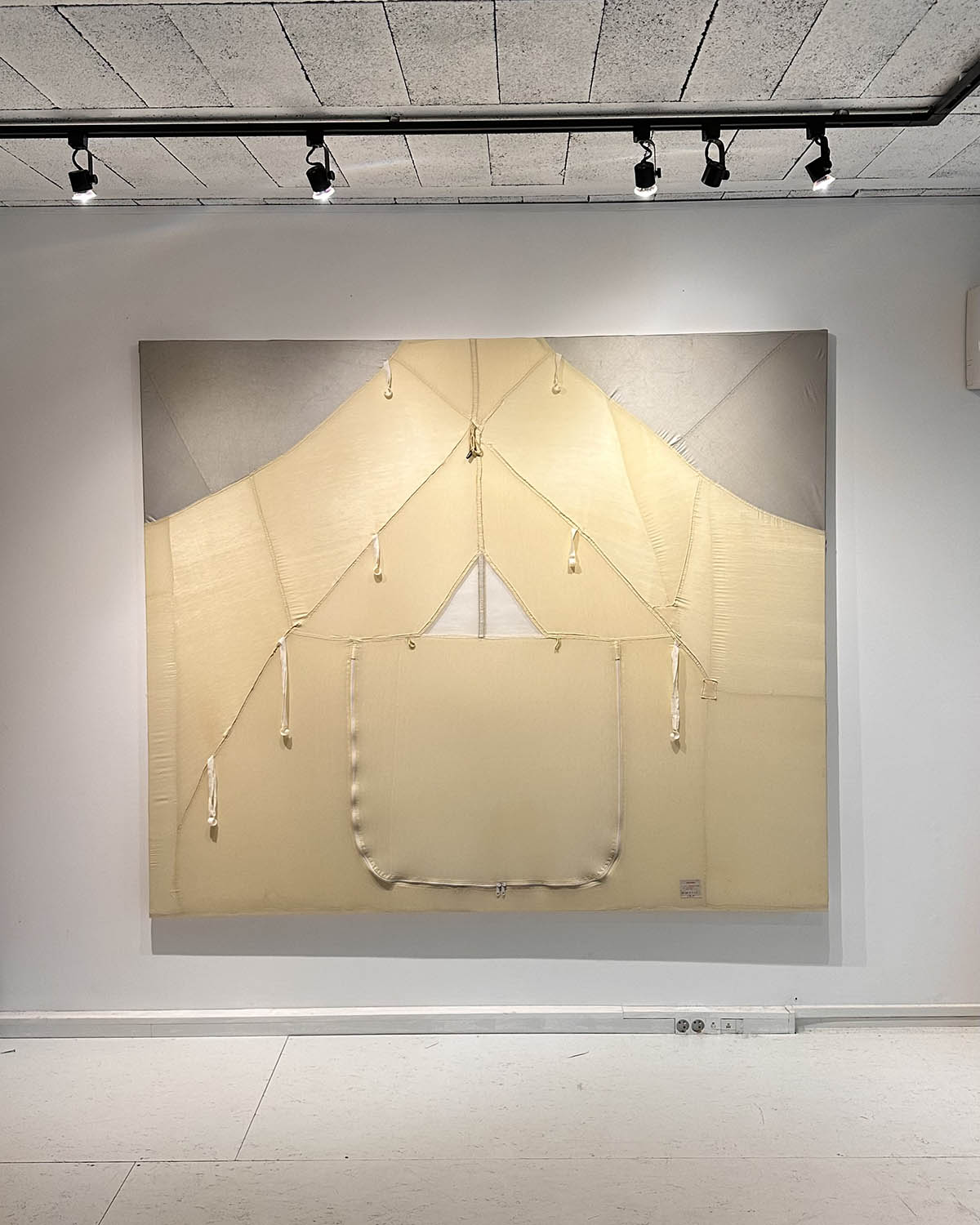
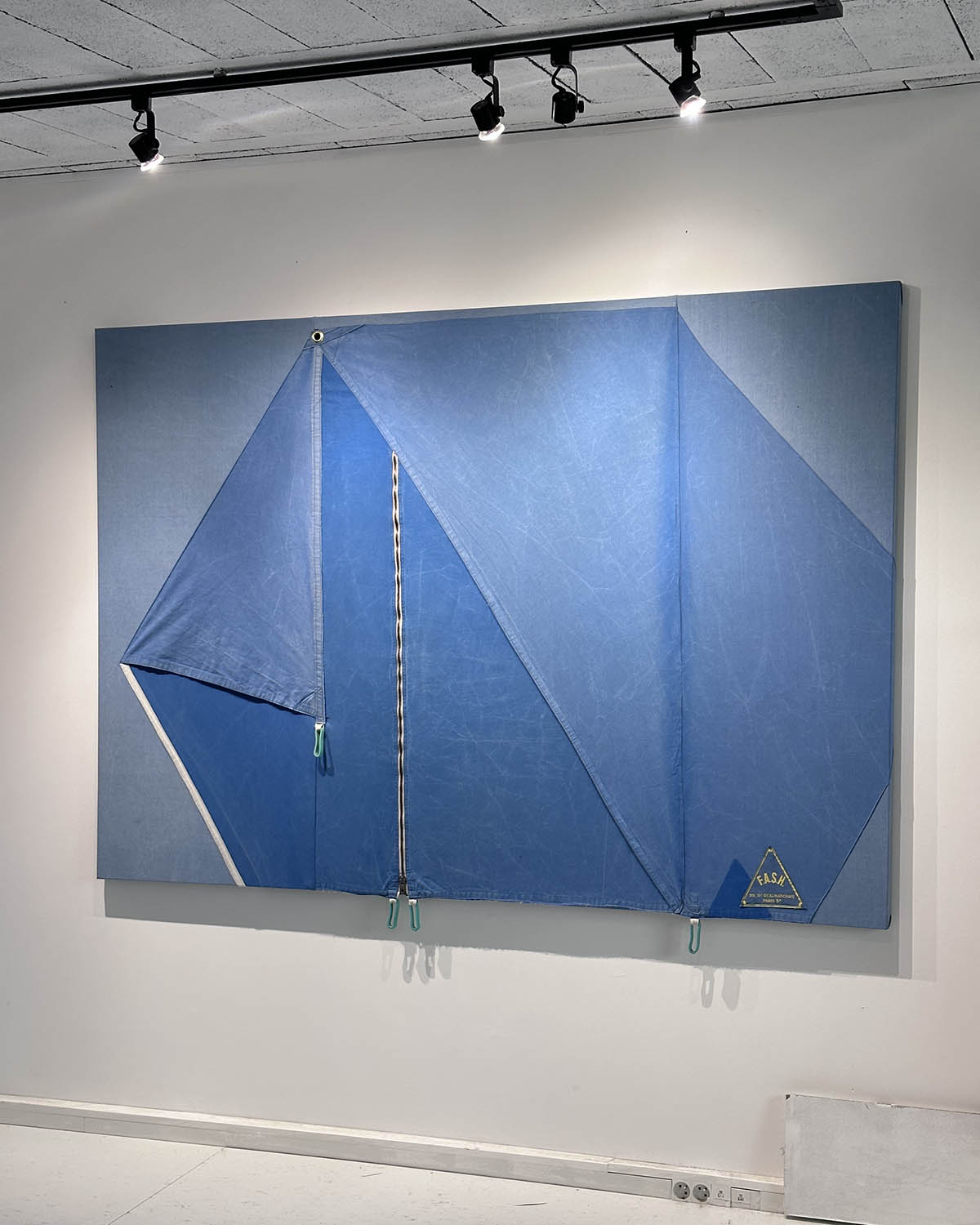
How do you manage to find a balance between abstract elements and concrete forms in your work?
I like creating these soft houses, these imaginary landscapes; they’re quite concrete, and they tell a story—any story you want. But sometimes I don’t want to tell a story but rather to let my emotions come out through colors and placement without thinking too much about it. Abstract: Allow me to do that. A design that I think will recur is the Canadian tent, with its triangle-shaped entrance and zips so recognizable that they speak for themselves. I imagine then that this shape, which remains fairly abstract, is the gateway to my more figurative narratives.
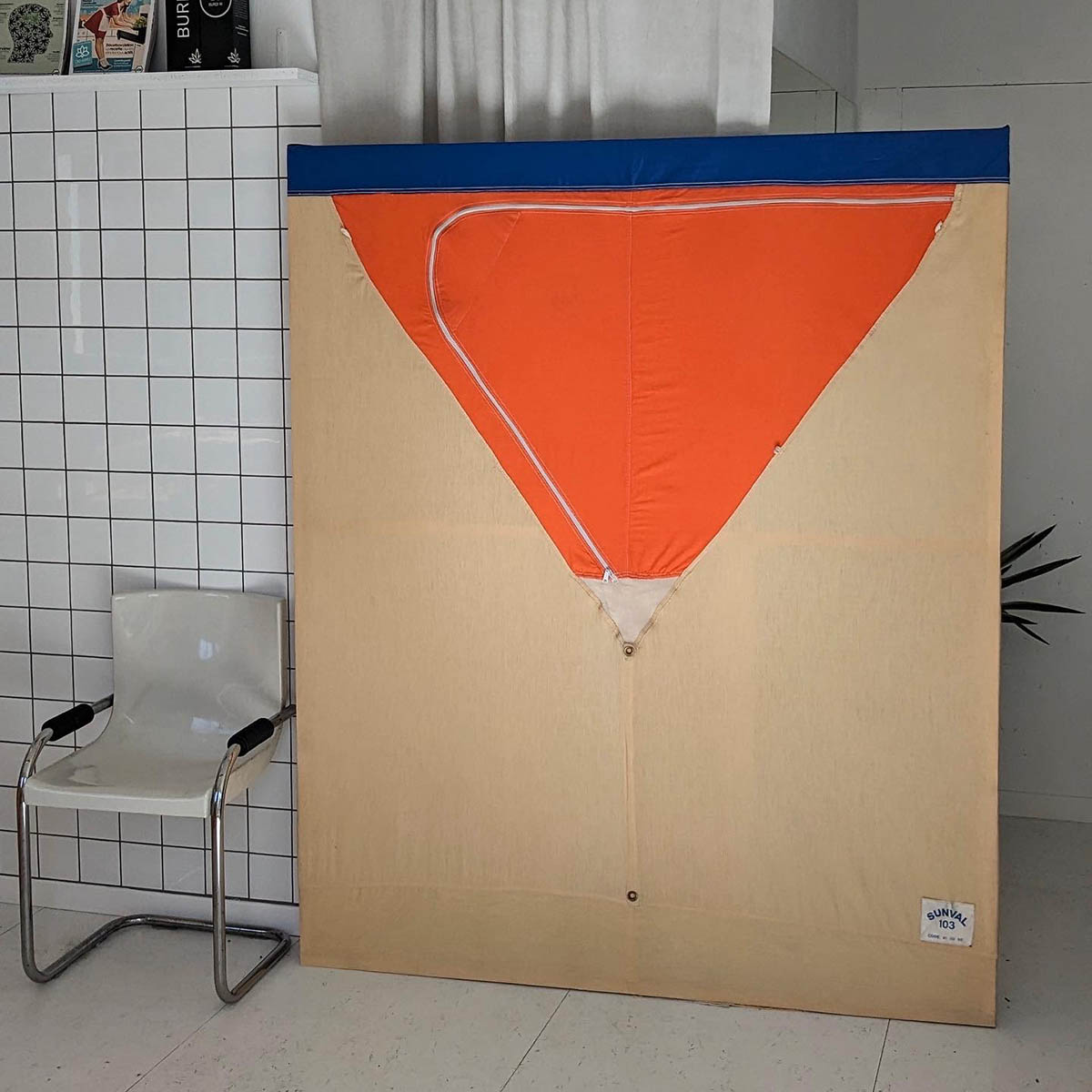
Can you tell us about a special moment that has left a lasting impression on you?
The day I unfolded the first tent canvas that belonged to my parents. It lay on the ground in such a way that the graphic elements of the canvas created a perfect composition. I hadn’t seen colors like that since I was a child. The next day, I built a wooden frame, and that’s where it all began.
What is the importance of emotional expression in your painting, especially when using bold colors?
It’s like choosing to wear bold-colored clothing. It makes you look good, it gives you confidence, and it catches the eye. It’s the same when I choose the colors I want to work with. Sometimes I want softness and subtlety to let my melancholy go, so I grab an indoor canvas that’s usually beige or light yellow. But I know the reason I was drawn to these tent canvases was because of their amazing colors, their fading, and the power they have to bring joy and nostalgia at the same time.
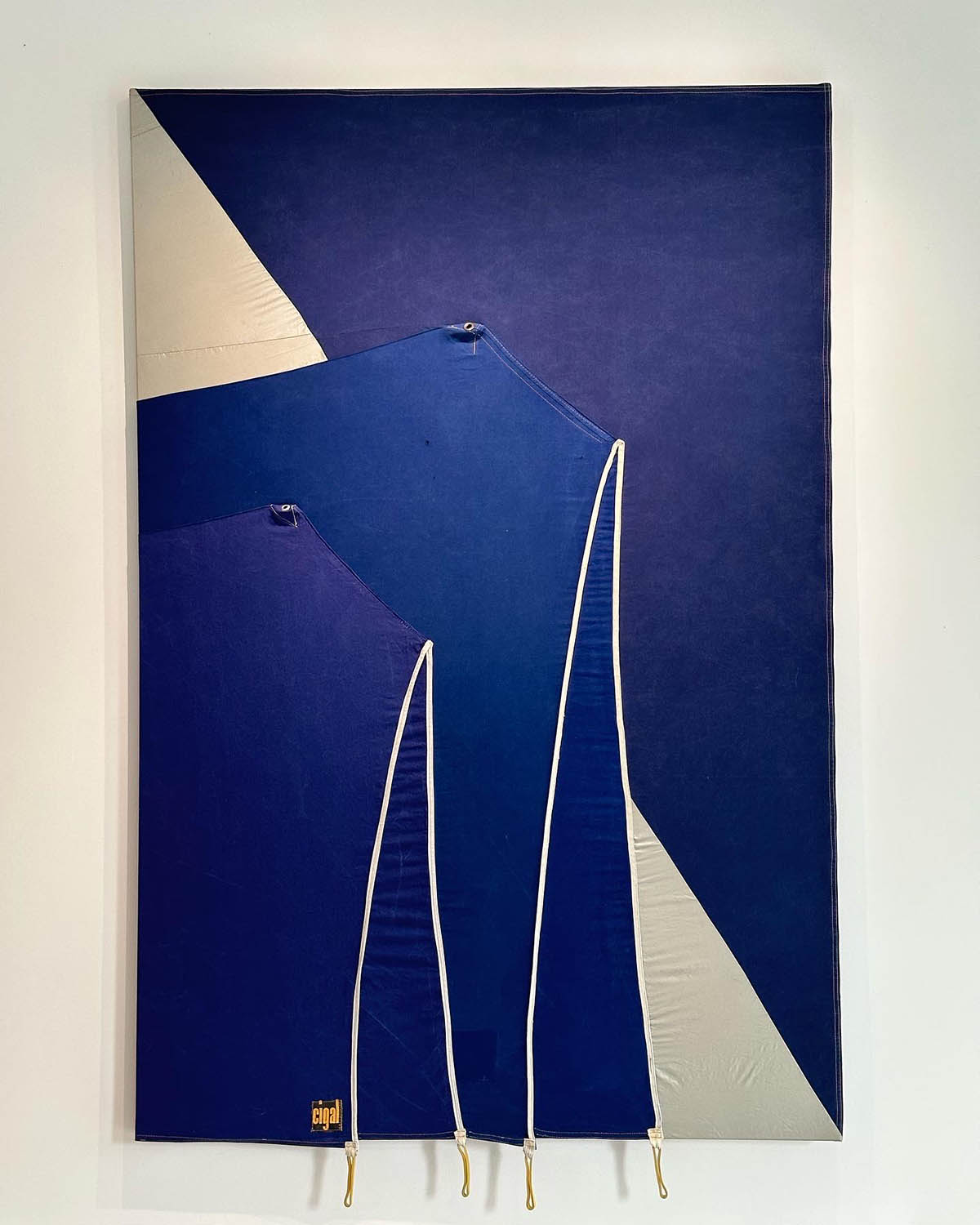
Do you already have plans for 2024?
To create installations and have the space to work with other materials to bring more detail to my work. Project in progress! I’m also going to be working with a big French luxury house, whose name I obviously can’t reveal at the moment. Not a project but a wish—to exhibit in a gallery! Seeing my large canvases on big white walls, creating a whole village of life-size soft houses… Curators and gallery owners, if you read me.
Delphine Lamarque – www.delphinelamarquestudio.com, www.instagram.com/delphinelamarquestudio/




